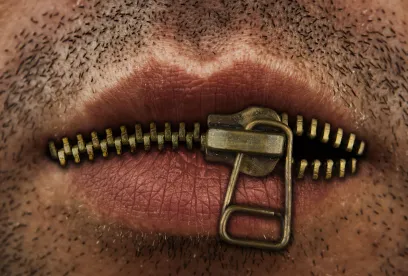In its third opportunity to review the district court’s decision in this trade secret case involving flooring, the US Court of Appeals for the Eleventh Circuit again reversed, this time vacating a permanent injunction and an award of attorneys’ fees. The Eleventh Circuit noted that the district court failed to make the findings required to support an injunction and abused its discretion in awarding full fees notwithstanding prior reversal of relief awarded. AcryliCon USA, LLC v. Silikal GmbH, Case No. 21-12853 (11th Cir. Aug. 29, 2022) (Newsom, Marcus, JJ.; Middlebrooks, Distr. J.)
In an earlier appeal in this case, the Eleventh Circuit reversed a ruling on trade secret misappropriation rendered by the district court in favor of AcryliCon USA (AC-USA) and vacated the damages award. An aspect of the Court’s ruling was that the “permanent” injunction entered by the district court was only preliminary in nature (not permanent) and was, as a matter of law, dissolved because the district court did not include it in the original final judgment. On remand, the district court was ordered to determine the appropriate amount of attorneys’ fees the prevailing party should receive. However, the district court just entered the same amount of attorneys’ fees it had originally awarded and again entered a “permanent” injunction barring the use of the trade secret at issue, concluding that it was obliged to do so by the Eleventh Circuit’s ruling in the first appeal.
In the second appeal, the Eleventh Circuit held that AC-USA failed, as a matter of law, to prove its misappropriation claim and reversed the judgment entered in favor of AC-USA on that count. The Court also reversed the district court’s judgment that its $1.5 million damages award could be sustained on the basis of the contract claim once the misappropriation claim was reversed. The Court ruled that, as a matter of law, since AC-USA had failed to prove actual damages on its consequential damages theory, it could only recover nominal damages based on its breach of contract claim. Finally, the Court concluded that AC-USA was entitled to attorneys’ fees only on its breach of contract claim because, under Georgia law, even a nominal damages award would still materially alter the legal relationship between the parties.
In the second remand, the district court awarded essentially the same amount of attorneys’ fees ($1.3 million) to AC-USA but acknowledged that, since Silikal prevailed in vacating the award of compensatory and punitive damages, Silikal “was the prevailing party on the appeal under the terms of the [agreement]” and was entitled to almost $500,000 in attorneys’ fees for its successful appeal. The district court also awarded $100 in nominal damages to AC-USA for its successful appeal on the breach of contract claim. The district court then entered a permanent injunction enjoining Silikal “from disclosing or using in any way, directly or indirectly, the [ . . . resin . . . ] to anyone other than Plaintiff.”
Both parties appealed. AC-USA appealed the award of appellate attorneys’ fees to Silikal, and Silikal appealed the entry of a permanent injunction and the amount of attorneys’ fees awarded to AC-USA. Silikal also requested reassignment of the case to a different judge.
The Eleventh Circuit explained that notwithstanding some district court confusion on this point, based on the first appeal it was the law of the case that no permanent injunction against Silikal had ever been entered by the district court. Notwithstanding, in the second remand, AC-USA asked the district court to “reaffirm its permanent injunction” and the district court agreed. The Eleventh Circuit therefore again reversed, noting that it had made it “crystal clear that no permanent injunction had been entered once the district court entered its final judgment” and vacated the permanent injunction.
To hammer home the point, the Eleventh Circuit noted that even if the district court had not made a mistake of law (in terms of law of the case), it failed to make the requisite findings under Federal Rules of Civil Procedure 60 and 65. As the Court explained, if the district court wanted to enter a permanent injunction in the second remand—five years after it entered the preliminary injunction—it needed to amend its original final judgment. Since no motion to do so was made before the district court, the Court did not address the point except to reject Silikal’s claim that a newly entered permanent injunction was barred by the Court’s holding in the second appeal that the mandate rule “does not and could not extend to issues the appellate court never addressed, and thus, the district court is free to address, as a matter of first impression, those issues not disposed of on appeal.”
The Eleventh Circuit also noted that by including a permanent injunction in the second remand, the district court further erred in failing to comply with Rule 65, which is
. . . unambiguous in prescribing that “[e]very order granting an injunction” must “(A) state the reasons why it issued; (B) state its terms specifically; and (C) describe in reasonable detail—and not by referring to the complaint or other document—the act or acts restrained or required.” . . . In considering whether to grant a permanent injunction, a court must address whether the plaintiff has demonstrated the following: (1) [the plaintiff] has suffered an irreparable injury; (2) remedies available at law, such as monetary damages, are inadequate to compensate for that injury; (3) considering the balance of hardships between the plaintiff and defendant, a remedy in equity is warranted; and (4) the public interest would not be disserved by a permanent injunction.
As for attorneys’ fees, the Eleventh Circuit held that because “the district court failed on remand to separate out what portion of the attorney’s fees were fairly attributable to each claim, it committed legal error under Georgia law and abused its discretion.” The Court also held that “[u]nder the ‘well settled law’ of Georgia, ‘a lump sum recovery for fees associated with claims on which a litigant does not prevail is not authorized.’” The Court faulted the district court for failing to include any analysis “about how much of the approximately $1.3 million fee award was attributable to counsel’s work on the breach of contract claim (for which AC-USA only recovered nominal damages), and how much of AC-USA’s work was attributable to the misappropriation claim, which it lost.” The Eleventh Circuit instructed the district court, on this third remand, to “apportion the attorney’s fees between the two claims based on AC-USA’s specific and detailed billing records or conclude—based on the evidence—that it would be impracticable in whole or in part to separate the legal work performed on the various claims.”




 />i
/>i


